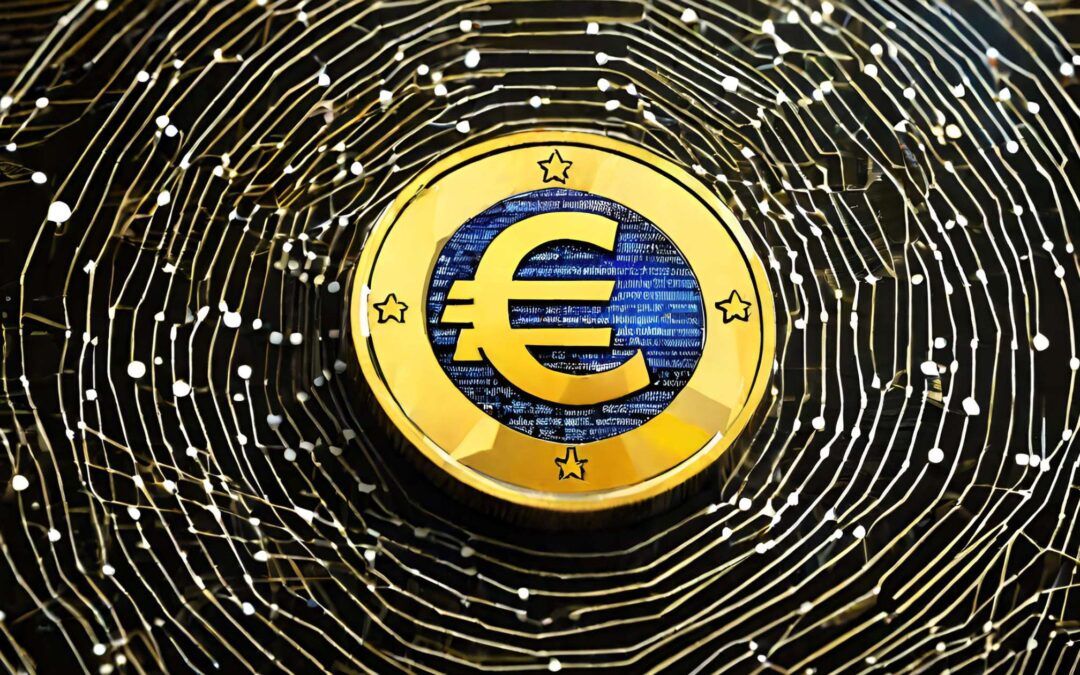The European Central Bank announces a decisive move towards introducing a digital euro. This initiative will enhance privacy, increase competition in the payment sector, and ensure financial stability.
Piero Cipollone, a top official at the European Central Bank (ECB), recently talked to a group of European lawmakers about getting ready to create a digital version of the euro. He mentioned four main challenges they need to tackle and assured that the ECB is working to ensure that everyone can use this new digital currency without having to pay for it.
Cipollone explained that the ECB is already looking for companies that can help build and support this new digital euro. He said it’s important to start looking for these companies now, before they officially decide to introduce the digital euro.
This way, they won’t be behind schedule. He also mentioned that any agreements they make with these companies will be flexible, taking into account future laws and technology changes.
Moreover, he mentioned that only companies based in the EU, or those controlled by EU citizens, will be allowed to be part of this project.
Partners for the digital Euro
This could be a big moment for Amazon because it was picked to help design a sample online shopping feature for the digital euro, but now they are looking for more applicants for the project.
Piero Cipollone also talked about the rules for using the digital euro. He described it as a single set of guidelines and standards that will make sure the digital euro works smoothly everywhere. According to Cipollone, the digital euro should be as straightforward to use as cash.
This would mean people wouldn’t have to rely on big international companies to make payments and everyone in the euro area would get the same level of service.
Cipollone likened the system supporting the digital euro to railway tracks.
Just like tracks can be used by many different train companies but are owned by the government, the digital euro system would be open for various businesses to use while being controlled by the state.
There is no need to make the digital Euro a legal tender
On February 15, a group called the European Money and Financial Forum, which is independent and not-for-profit, released a study. This study pointed out some tricky legal problems that could come up if the digital euro is made a required form of payment.
It was especially concerned about how this decision could affect companies that handle payments and are part of the euro payment system. The study also criticized the idea of making something a required form of payment, calling it an outdated concept.
To make sure the digital euro doesn’t upset the financial system, Piero Cipollone said they’re adding some safety measures to its design. For instance, the digital euro won’t earn interest, so it won’t compete with banks where people save their money.
There will also be limits on how much digital euro individuals can hold, and businesses and financial institutions won’t be allowed to keep it.
However, people will be able to connect their digital euro wallets to their bank accounts. This means they can make transactions directly without needing to move money into their wallets first.
Cipollone also mentioned privacy with the digital euro, promising that it would allow for very private online payments, more private than what’s currently available through commercial services.
Will cash still be in use after the release of the digital Euro?
Cash will still be available, and when you pay with the digital euro without using the internet, it will be just as private as using cash.
Only the person giving the money and the person receiving it will know the details of the transaction.
When paying online, the European Central Bank (ECB) will only get a very small amount of data that’s been disguised to protect identities.
This data is only for necessary actions like completing the payment.
Plus, users will have more control over their personal information than they do with private payment services. The digital euro will also have the best protection against online threats.
ECB’s timeline for the digital Euro
The European Central Bank (ECB) is taking careful steps towards introducing the digital euro, with the project currently in the research and development phase.
In November 2023, the preparation phase was approved to start after the investigation phase was concluded.
While specific dates for the full rollout are yet to be announced, the ECB has indicated a phased approach.
Initial experiments and prototypes are being tested to ensure the digital euro meets high standards of security, efficiency, and accessibility.
Following this, a pilot phase could be launched to test real-life applications, expected to take several years to complete.
The final introduction of the digital euro to the public would only occur after successful trials and adjustments based on feedback.
This cautious approach ensures that once launched, the digital euro will be ready for widespread use across the eurozone, providing a seamless and secure digital payment option for all citizens.
Ultimately, the final decision to introduce the digital Euro can only be taken after the entire EU adopts a legislative framework.

